
Atomtronics, Or Atoms Spun By Laser Beams, Could Replace Electronics
A new type of circuit involving a whirling donut of supercold gas could lead to the world's first "atomtronic" devices, potentially more powerful
Read more...

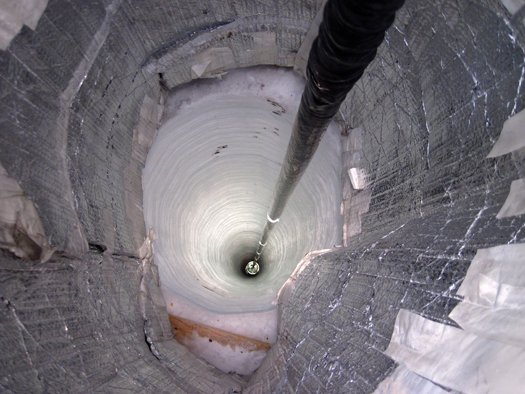

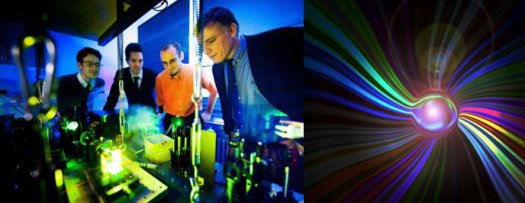
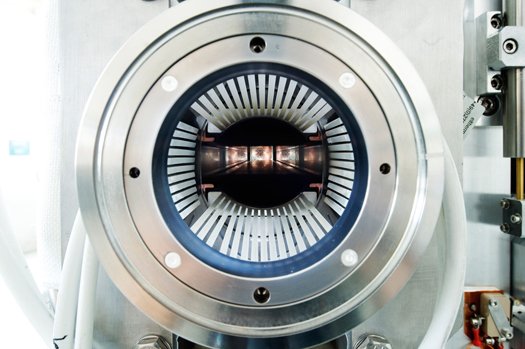
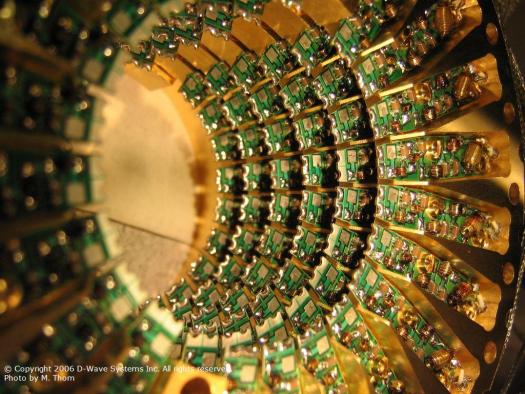


A new type of circuit involving a whirling donut of supercold gas could lead to the world's first "atomtronic" devices, potentially more powerful
Read more...
Forget the gigantic Large Hadron Collider - how about a particle-accelerator-on-a-chip?
OK, so it can't reach the energies produced at
Read more...
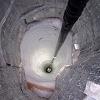
After a decade of planning, testing, and boring massive holes in the Antarctic ice with a huge hot water drill, National Science Foundation researchers and their partners completed the IceCube
Read more...

Every December since 2004, engineers have flown to the South Pole to drill 8,000-foot-deep holes in the ice. The team lowers cables, each strung with 60 disco-ball-size light sensors, into the holes and let them freeze over. So far they have completed 79 such holes, set
Read more...
The milestones just keep coming over at the Large Hadron Collider. The latest: CERN researchers have glimpsed for the first time the so-called quark-gluon plasma that existed in the
Read more...

Physicists from the University of Bonn are looking at things in a whole new light, quite literally. Through the clever use of mirrors and some smart science, researchers there have created a wholly new source of light by cooling photons to the point that they condense
Read more...
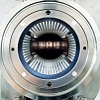
The Large Hadron Collider took several years to construct, and it was expected that it would take several more to begin yielding game-changing scientific data. But, to the delight of CERN researchers, that hasn't been the case. The LHC is already yielding reams of valuable
Read more...
While CERN researchers at the Large Hadron Collider continue to smash protons, create mini Big Bangs, and otherwise probe the fundamental fabrics
Read more...
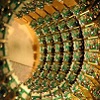
Ramped-up research efforts at IBM and other labs in the U.S. and Europe could lead to more powerful and more prevalent quantum computers in the near future.
IBM is breathing new life into a quantum computing research division at its Thomas J. Watson Research
Read more...

Keeping tabs on nuclear material is both increasingly important and increasingly difficult these days, but researchers at the University of Maryland have devised a mechanism that may make it a lot easier to ensure unchecked radioactive materials don't make it illicitly
Read more...

A new type of circuit involving a whirling donut of supercold gas could lead to the world's first "atomtronic" devices, potentially more powerful
Read more...
The milestones just keep coming over at the Large Hadron Collider. The latest: CERN researchers have glimpsed for the first time the so-called quark-gluon plasma that existed in the
Read more...
Forget the gigantic Large Hadron Collider - how about a particle-accelerator-on-a-chip?
OK, so it can't reach the energies produced at
Read more...

After a decade of planning, testing, and boring massive holes in the Antarctic ice with a huge hot water drill, National Science Foundation researchers and their partners completed the IceCube
Read more...

The Large Hadron Collider took several years to construct, and it was expected that it would take several more to begin yielding game-changing scientific data. But, to the delight of CERN researchers, that hasn't been the case. The LHC is already yielding reams of valuable
Read more...

Every December since 2004, engineers have flown to the South Pole to drill 8,000-foot-deep holes in the ice. The team lowers cables, each strung with 60 disco-ball-size light sensors, into the holes and let them freeze over. So far they have completed 79 such holes, set
Read more...
A fourth neutrino could help explain dark matter
Physicists working with a Fermilab neutrino experiment may have found a new elementary
Read more...
Electronic devices could get much more sophisticated with new diode technology that allows electrons to move around more quickly. Two groups of researchers are reporting advances in diode performance through new manufacturing processes - one uses a
Read more...

Physicists from the University of Bonn are looking at things in a whole new light, quite literally. Through the clever use of mirrors and some smart science, researchers there have created a wholly new source of light by cooling photons to the point that they condense
Read more...
While CERN researchers at the Large Hadron Collider continue to smash protons, create mini Big Bangs, and otherwise probe the fundamental fabrics
Read more...
A fourth neutrino could help explain dark matter
Physicists working with a Fermilab neutrino experiment may have found a new elementary
Read more...
Electronic devices could get much more sophisticated with new diode technology that allows electrons to move around more quickly. Two groups of researchers are reporting advances in diode performance through new manufacturing processes - one uses a
Read more...

The Large Hadron Collider took several years to construct, and it was expected that it would take several more to begin yielding game-changing scientific data. But, to the delight of CERN researchers, that hasn't been the case. The LHC is already yielding reams of valuable
Read more...
While CERN researchers at the Large Hadron Collider continue to smash protons, create mini Big Bangs, and otherwise probe the fundamental fabrics
Read more...

Ramped-up research efforts at IBM and other labs in the U.S. and Europe could lead to more powerful and more prevalent quantum computers in the near future.
IBM is breathing new life into a quantum computing research division at its Thomas J. Watson Research
Read more...

Keeping tabs on nuclear material is both increasingly important and increasingly difficult these days, but researchers at the University of Maryland have devised a mechanism that may make it a lot easier to ensure unchecked radioactive materials don't make it illicitly
Read more...
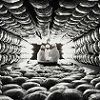
On our short list of dreams here at PopSci is to paddle around inside Super-Kamiokande, the giant Japanese subterranean pool that
Read more...

Every December since 2004, engineers have flown to the South Pole to drill 8,000-foot-deep holes in the ice. The team lowers cables, each strung with 60 disco-ball-size light sensors, into the holes and let them freeze over. So far they have completed 79 such holes, set
Read more...
The milestones just keep coming over at the Large Hadron Collider. The latest: CERN researchers have glimpsed for the first time the so-called quark-gluon plasma that existed in the
Read more...

Physicists from the University of Bonn are looking at things in a whole new light, quite literally. Through the clever use of mirrors and some smart science, researchers there have created a wholly new source of light by cooling photons to the point that they condense
Read more...
Popular Science has been a leading source of science, technology and gadget news since 1872. With up-to-the minute latest space news, insightful commentary on the new innovations and concept cars ...if it's new or future technology you'll find it at popsci.com.au.
WW Media - Popular Science © 2010
Gadgets - Cars - Science